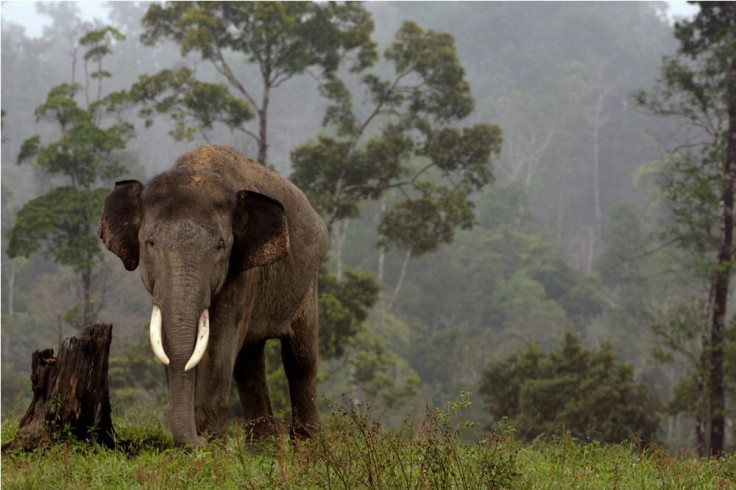Circle Of Life: Hunter Who Earlier Shot Dead A Leopard, Trampled By Elephant

In an example of how the circle of life principle operates in the jungle, an elephant crushed to death on Wednesday a big-game hunter while on a safari in Zimbabwe. Hours earlier, the victim, Ian Gibson, shot to death a leopard.
The 55-year-old Gibson was looking for another prey in Zambebwi Valley for an American client. The area, Chiwore North, is a known elephant lair.
Gibson was resting when the male elephant suddenly made a U-turn and charged and knelt on the hunter, crushing him to death, reports the Telegraph. When he saw the elephant charging, Gibson shot it once from 10 yards away, using his 458 rifle.
Paul Smith, Gibson’s employer and managing director of Chifuti Safaris, explained that while Gibson was a hunter, he was also a great wildlife photographer and conservationist. “He would never had fired unless he had no alternative,” Smith said.
Smith added that the American client and Gibson’s trackers are still too traumatised by the incident to provide more details about the attack. According to the trackers, the male elephant was in a musth period when its body produces more testosterone than usual.
During musth, male elephants exhibit highly aggressive behaviour due to the large rise in its reproductive hormones, which could be up to 60 times than in ordinary times. Scientists, however, have a difficulty determining if the hormonal rush is the only cause of the musth or a contributing factor because elephants in this phase are highly violent towards people and even other elephants that it has to be separated and isolated, according to Wikipedia.
Gibson too had a full circle in his wildlife career since he began it at Zimbabwe’s Department of National Parks. However, he left and turned hunter but returned after 25 years.
His house is in Marondera, located 45 miles south east of Harare. He has a son who works in Tanzania and two daughters who live in Harare. The Dallas Safari Club in the US is shouldering Gibson’s funeral expenses.
Besides hunting wildlife, Gibson also protected the area from poachers from Mozambique and Zambia since Zimbabwe’s National Parks funding is insufficient to have enough patrol personnel to protect it.
To contact the writer, email: v.hernandez@ibtimes.com.au





















